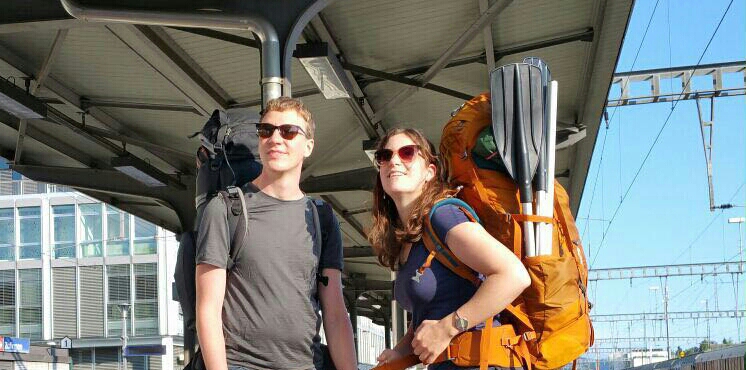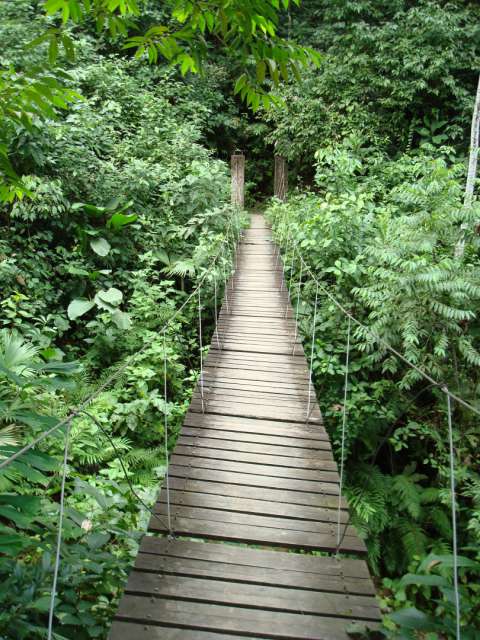मैं बैकालसी हूं
प्रकाशित: 21.09.2016
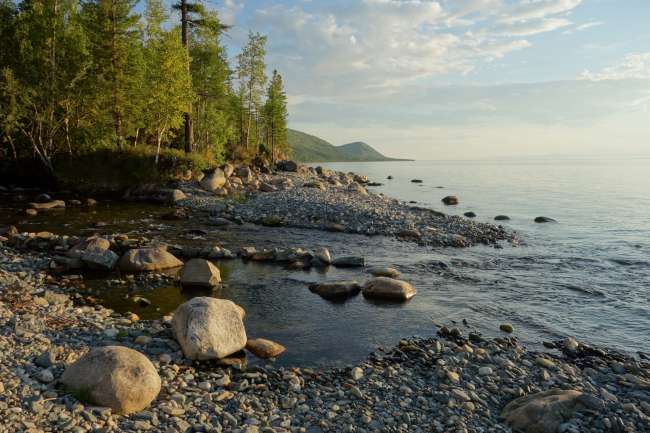
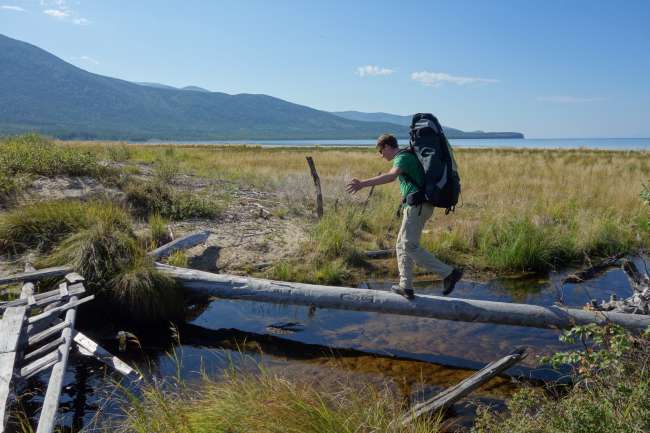
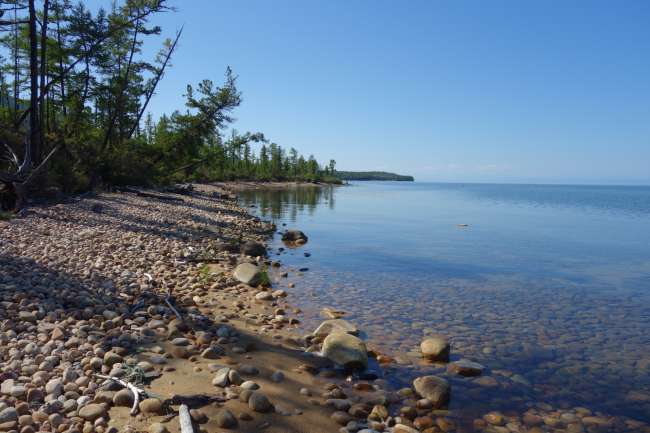
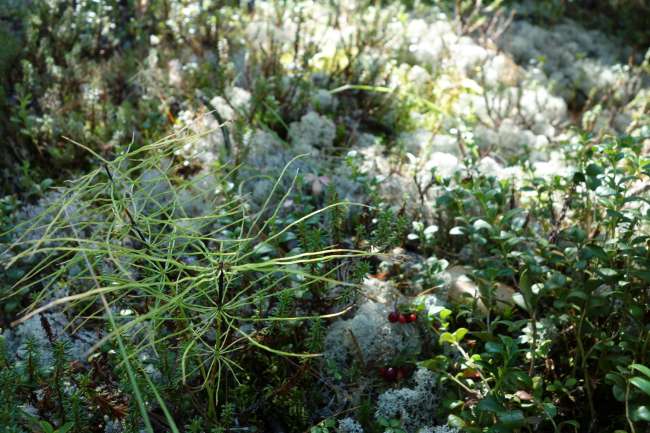
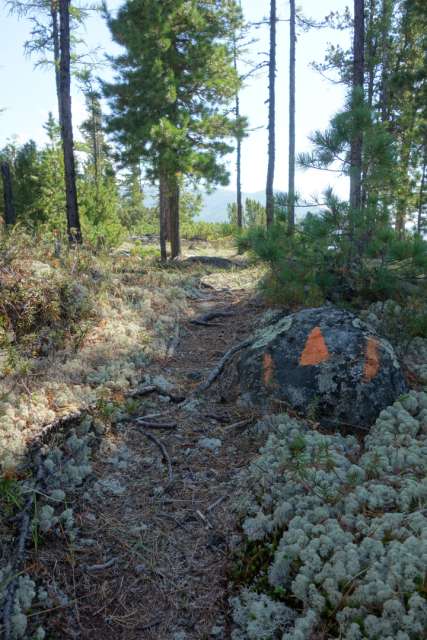
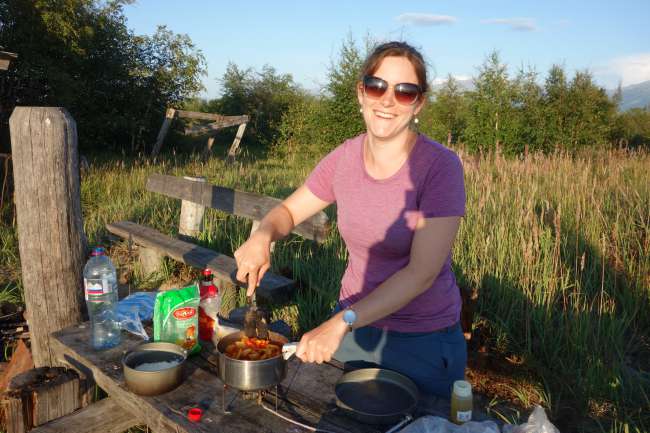
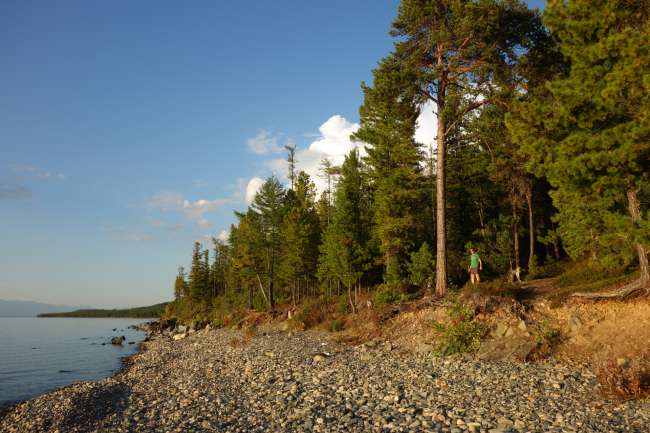
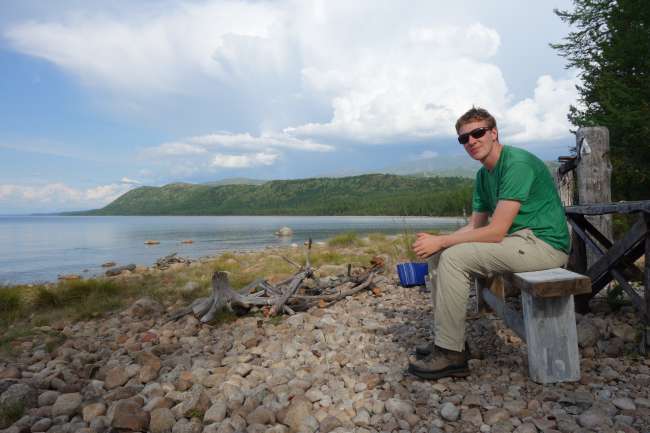
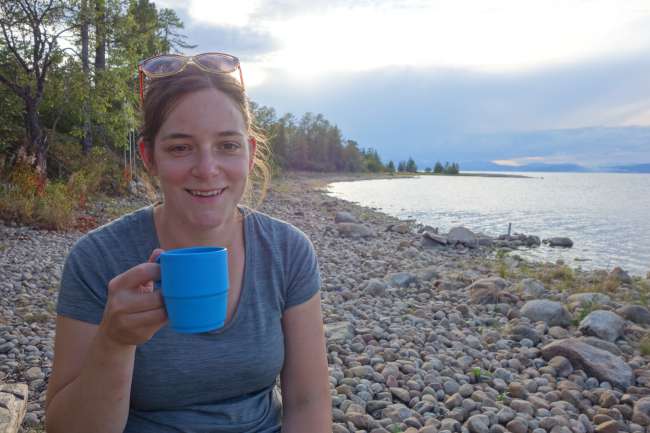
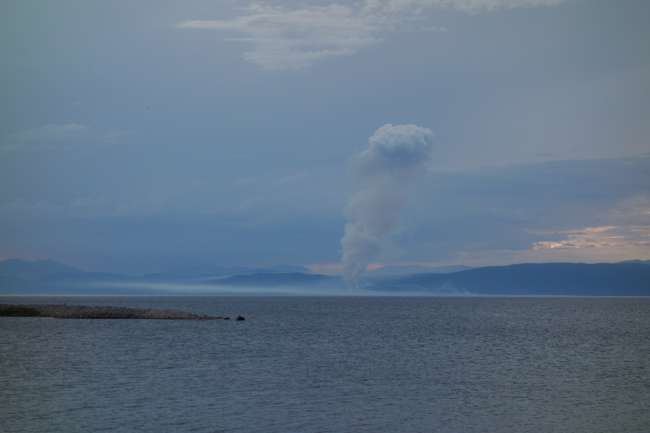
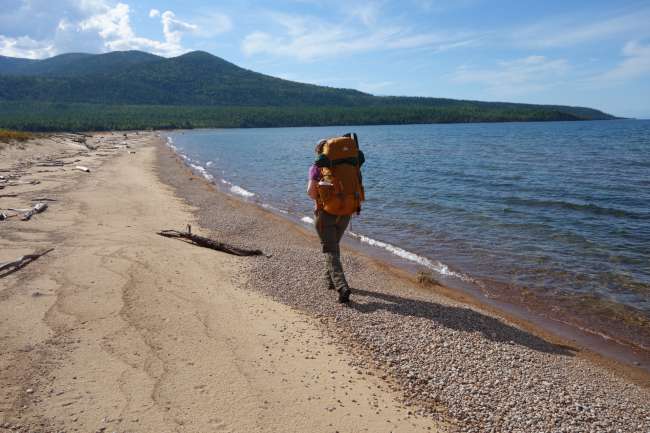
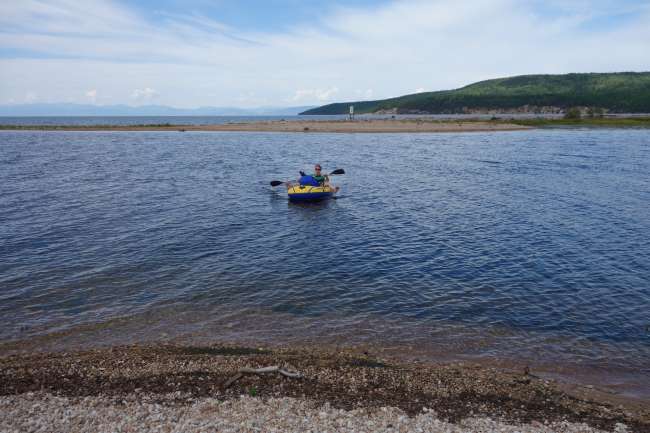
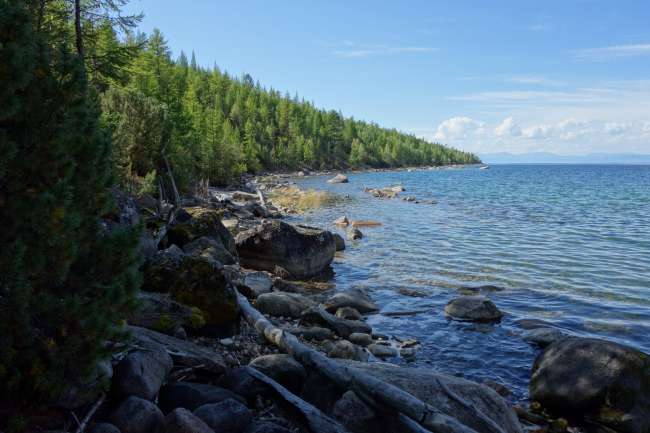
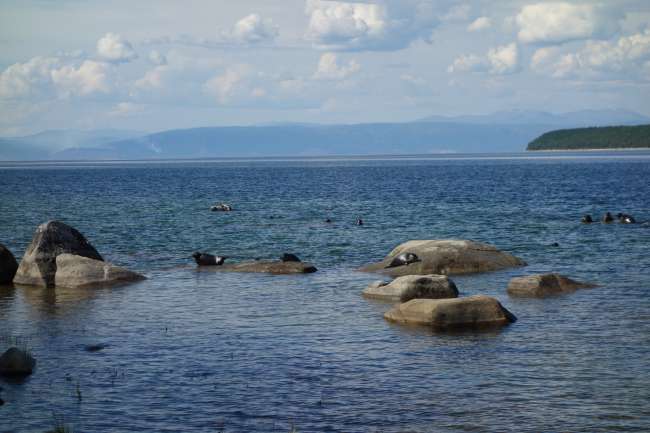
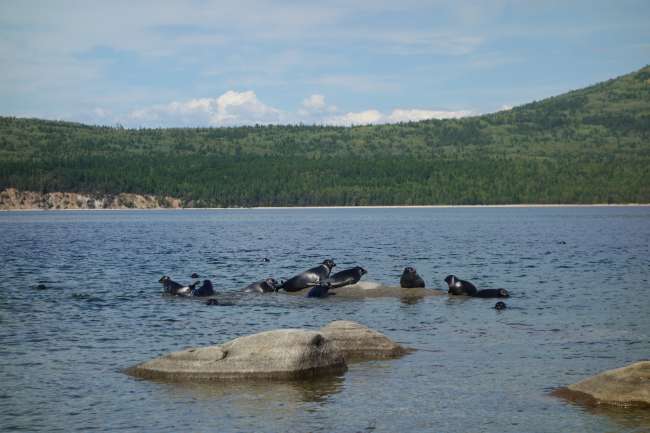
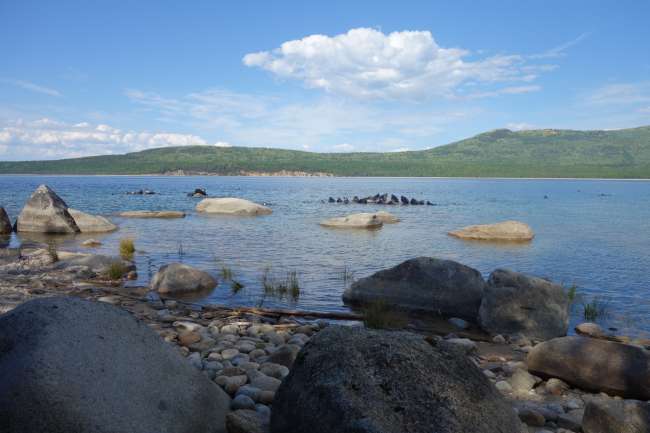
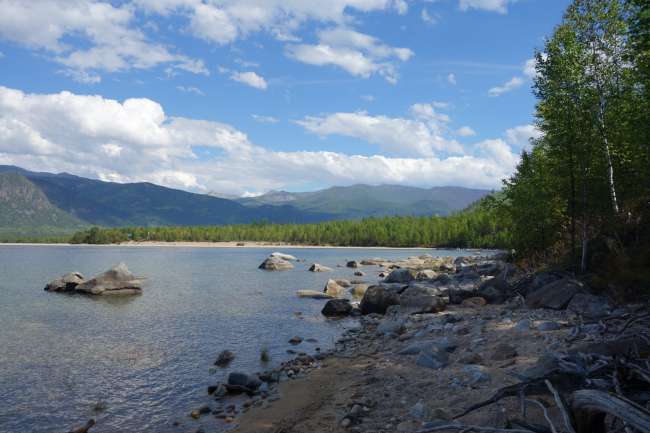
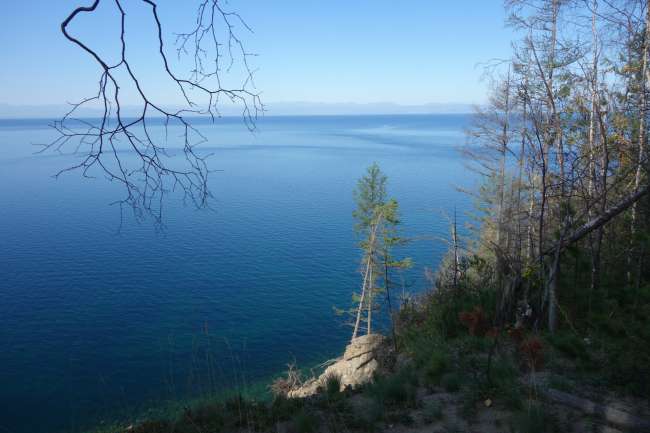
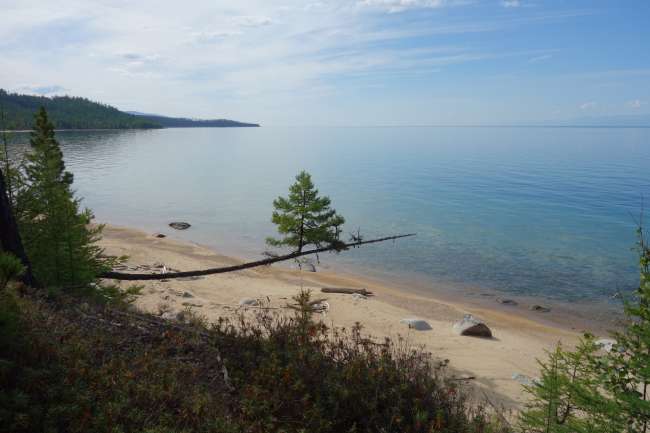
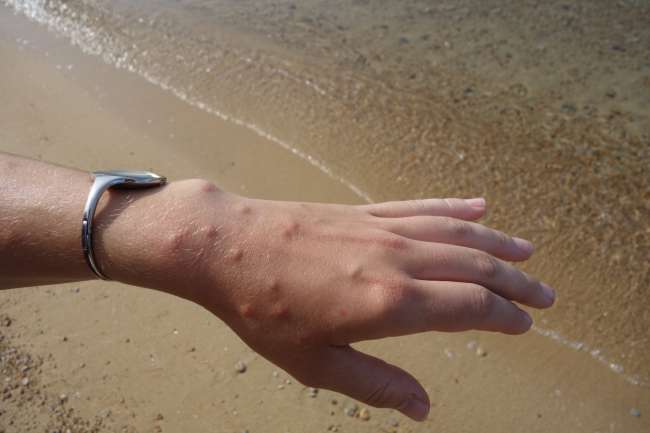
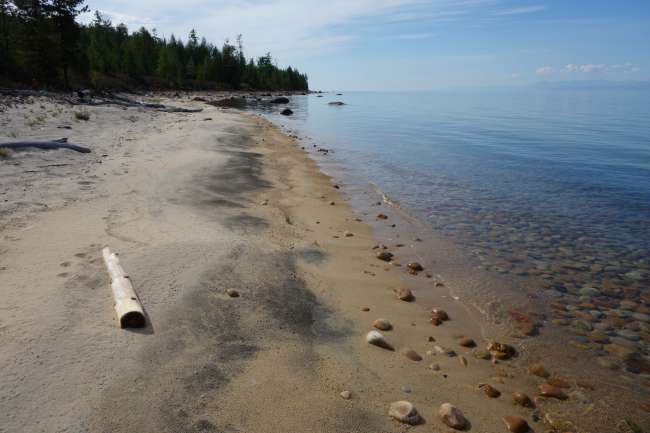
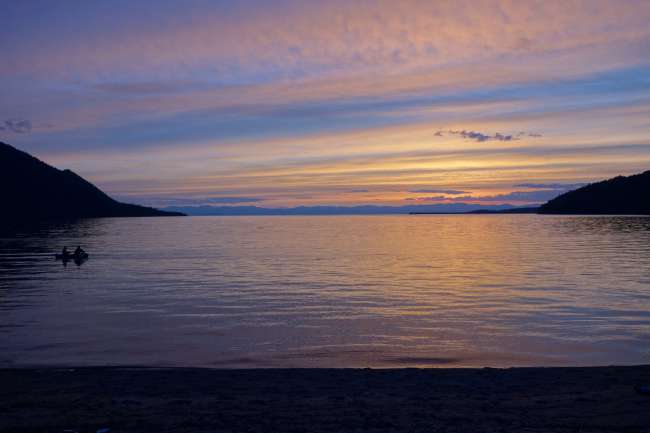
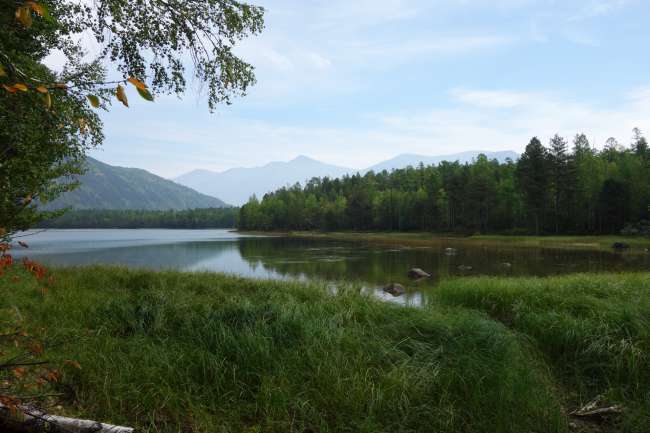
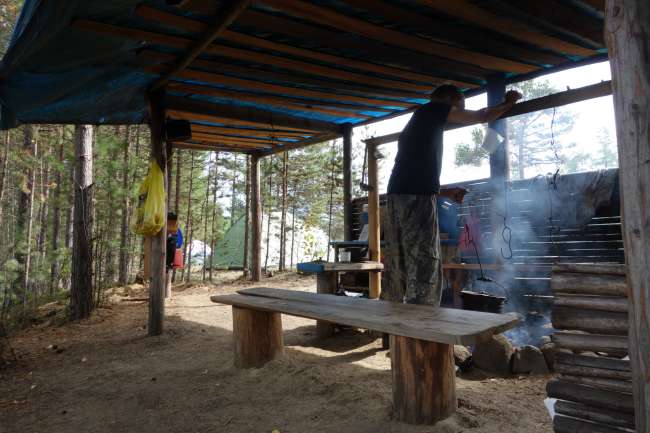
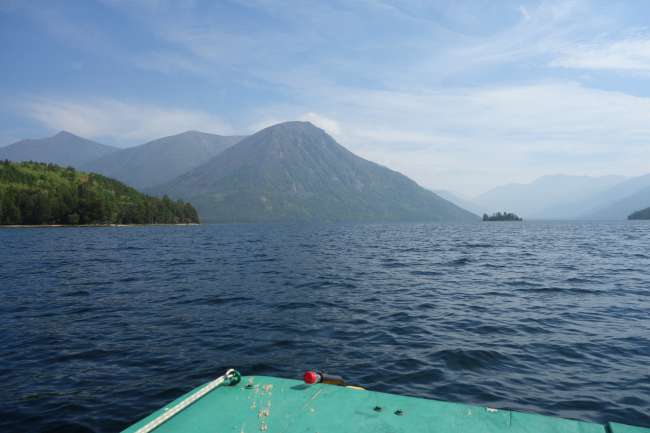
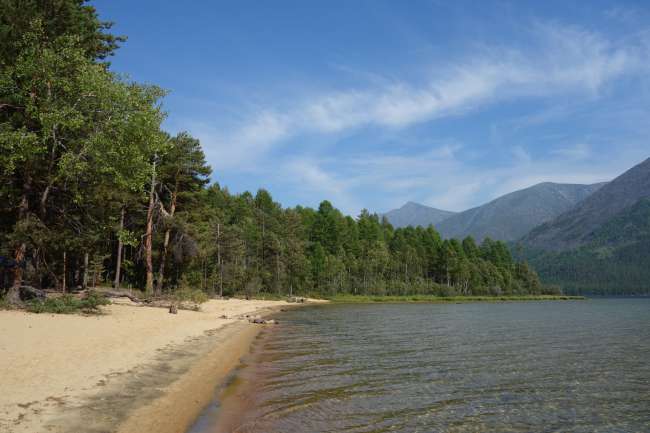
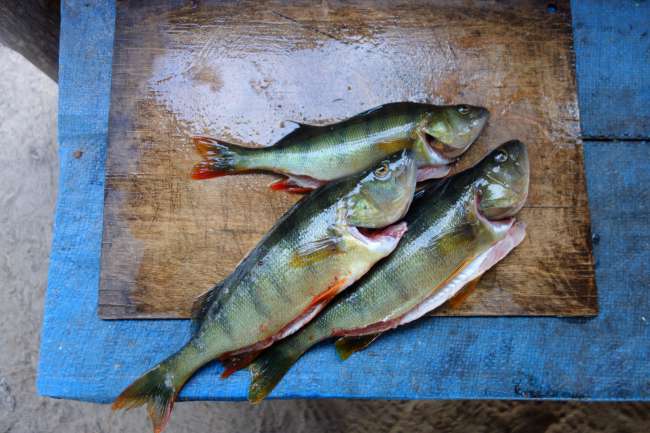
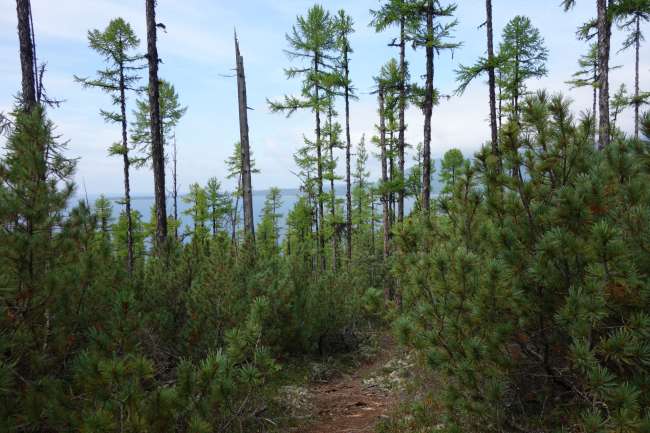
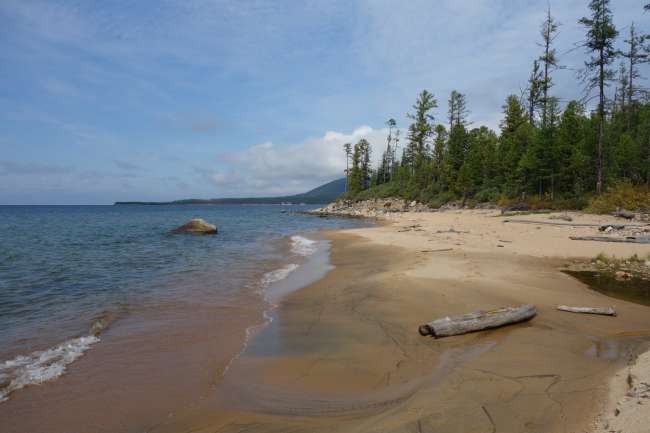
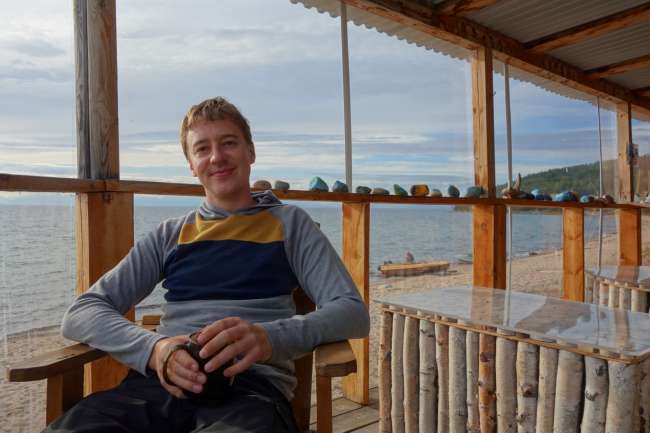
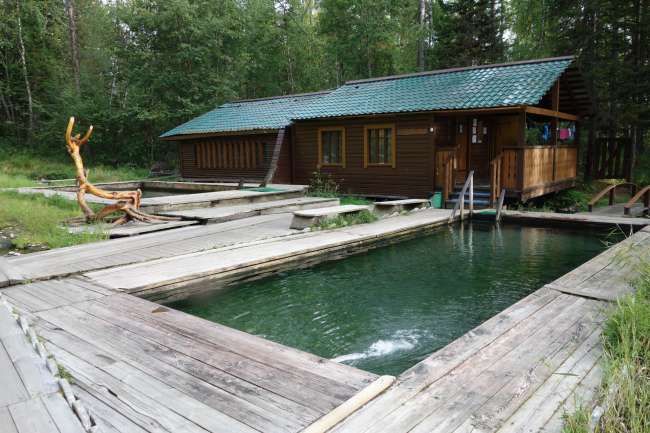
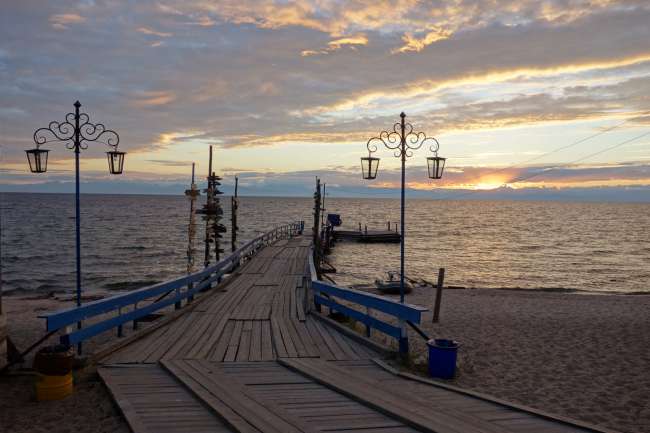
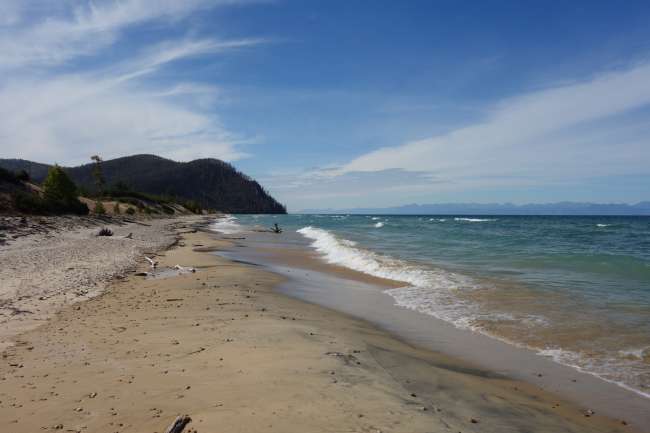
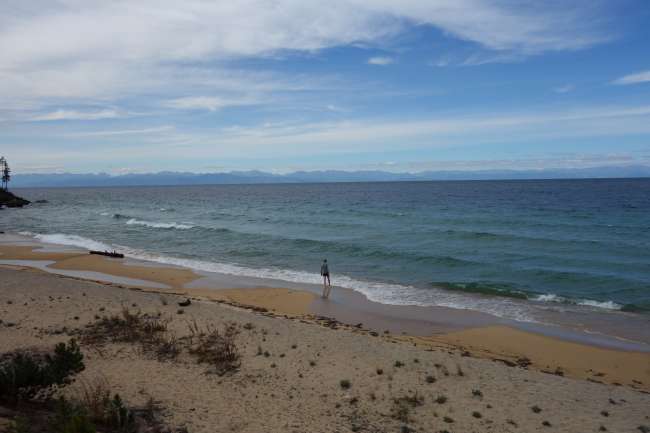
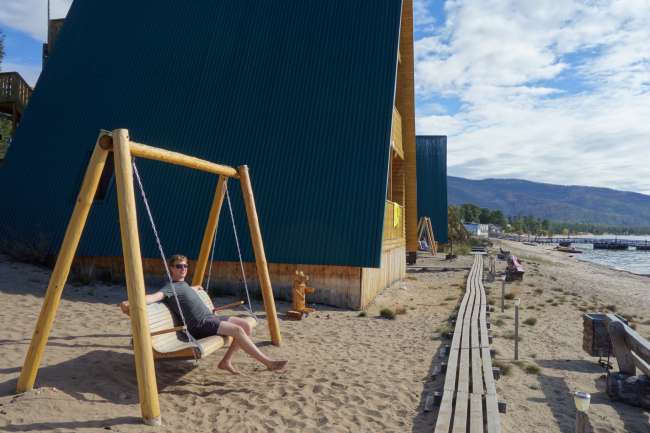
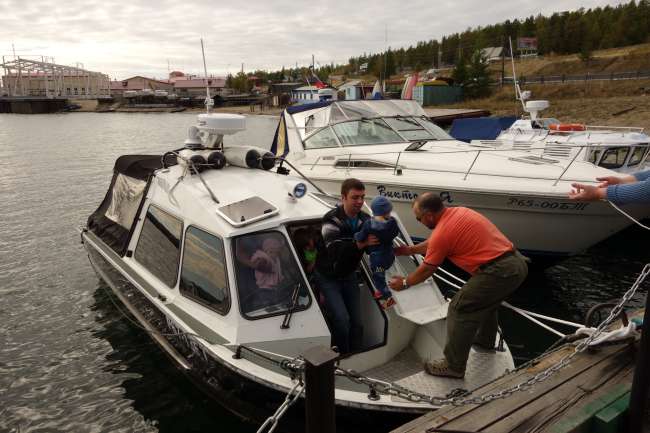
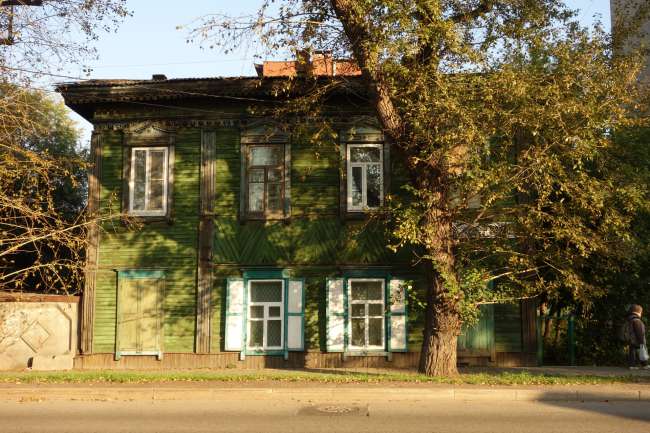
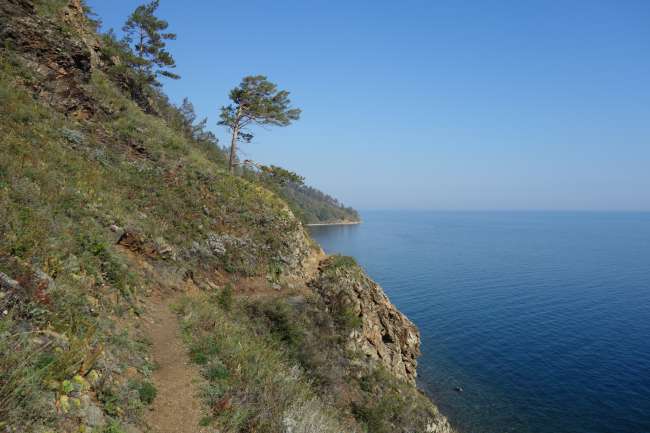
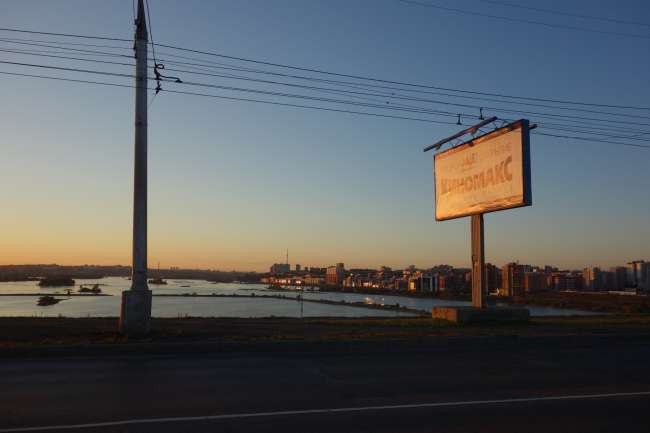
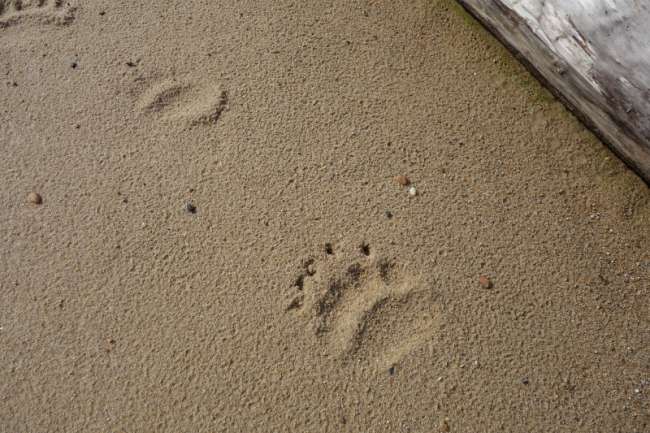
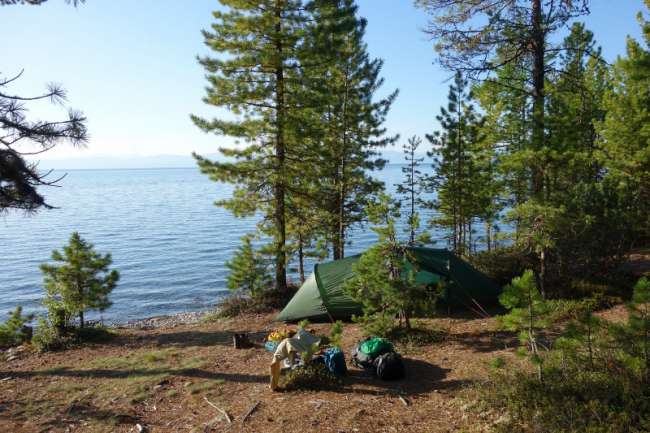
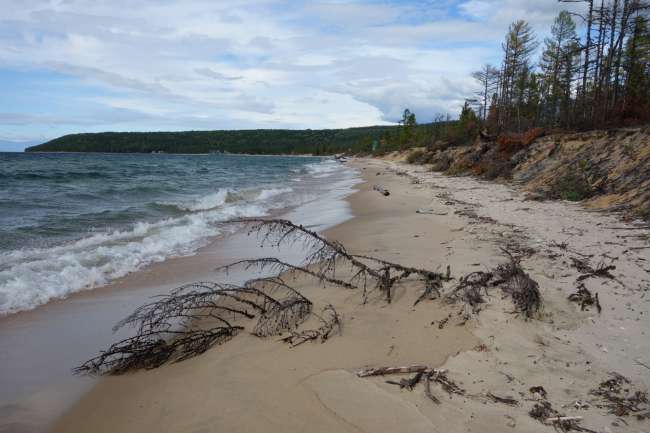
समाचार पत्रिका के लिए सदस्यता लें
In Severobaikalsk, we saw Lake Baikal for the first time. From here, we wanted to start the Frolikha Adventure Coastline Track - a hiking trail along the wild northern shore of Lake Baikal. Lake Baikal is the largest, deepest, and oldest lake on Earth. One-fifth of the world's drinking water is said to be in this lake. At the end of summer, it was a warm 14° Celsius on the shore, but in winter it freezes completely. The lake is so large that tides even occur.
In the city, we stocked up on supplies for 10 days. In the trekking hostel, we met two like-minded Germans and were able to share a boat to the starting point at a ranger station. The trail has been well developed and marked by a German association. It always led along the shore, sometimes on beaches, through forested areas, or over rocks. We kept reminding ourselves that this couldn't possibly be a lake and that we must be by the sea. Every evening, we found a beautiful spot for swimming and camping. On the way, we had to cross a larger river, but we brought a small inflatable boat specifically for that purpose.
On the first day, a dog from the ranger station followed us relentlessly. So we didn't have to worry about bears, but on the other hand, the dog eagerly attacked any Baikal seals that showed up (of course unsuccessfully), causing the shy animals to immediately dive under. Fortunately, we were able to shake him off during a river crossing. For the next 5 days, we didn't encounter a single soul - just squirrels, chipmunks, foxes, minks, and Baikal seals that we could always observe on the rocks in front of the shore. The black creatures clumsily climbed the rocks with plenty of winter fat, and at the slightest noise, leaped into the water as if they were bitten by a monkey.
In addition to the Baikal seals, there are over 1000 endemic species at the lake, meaning animals that only occur here. The variety of insects, in particular, bothered us. It was fairly quiet at the lakeshore, but in the taiga forest, there were plenty of mosquito, bumblebee, and wasp species. In addition to biting midges, a special specimen should be mentioned that buzzes around in front of your eyes, then deliberately plunges in, gets stuck, and dies a painful martyr's death. Or the thermal water-loving fly, which is only the size of a pinhead but inflicts bloody bites.
On the fifth day, we arrived at a ranger station in the Ayaya Bay, inside the national park. From there, we hiked to Lake Frolikha, where we could take a ride on a small catamaran with Inspector Andrei. We invited him for lunch and a half bottle of vodka (fortunately, we had it with us). Suddenly, we found ourselves on a large catamaran on the lake again, together with Andrei - and only him! - fishing for perch. There are also dawatschan in the lake. This fish is only found here and is said to have not changed since the Ice Age. It is protected, and fishing on the lake is prohibited, but the inspectors are allowed to catch fish for personal use. Catching them looked downright ridiculously easy: fish bites, fish is caught. Andrei filled the fish with sauce and onions and fried them with potatoes over the fire. We had never eaten such delicious fish before!
On the eighth day, we arrived at our destination in the resort town of Khakussy. There, we stayed in a hotel consisting of various wooden houses on the beach (with a kitchen and living room) for some rest and relaxation. The hot springs in the town feed several hot thermal pools. The town was so cozy that we wanted to stay here for 3 days. Gradually, our supplies ran low: the only place to get food in the town was a small bar where we - together with the Germans we had met again the day before - bought up all the chocolate, then the chips, then the mashed potatoes, and finally the cookies. Due to the waves, we couldn't cross over and were given a free night at the hotel.
Back in Severobaikalsk, we continued our journey to Irkutsk at the southern end of Lake Baikal by train. It is an incredible 33-hour train ride from one end of the lake to the other. We really liked Irkutsk, so we stayed there for a while. It still has many old wooden houses, beautiful parks on the Angara River, and is well located. From the city, we made a side trip to the coastal town of Listvyanka on Lake Baikal, where we hiked a day stage on the Great Baikal Trail. Here, the coast was noticeably steeper and less wooded - but equally beautiful. On to Mongolia!
समाचार पत्रिका के लिए सदस्यता लें
उत्तर
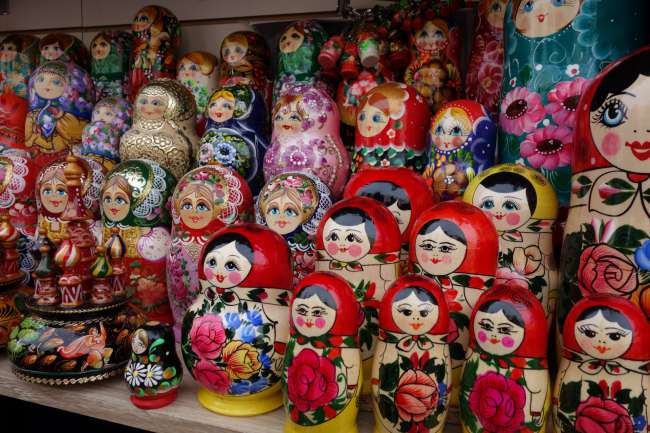
यात्रा रिपोर्ट रूसी संघ
